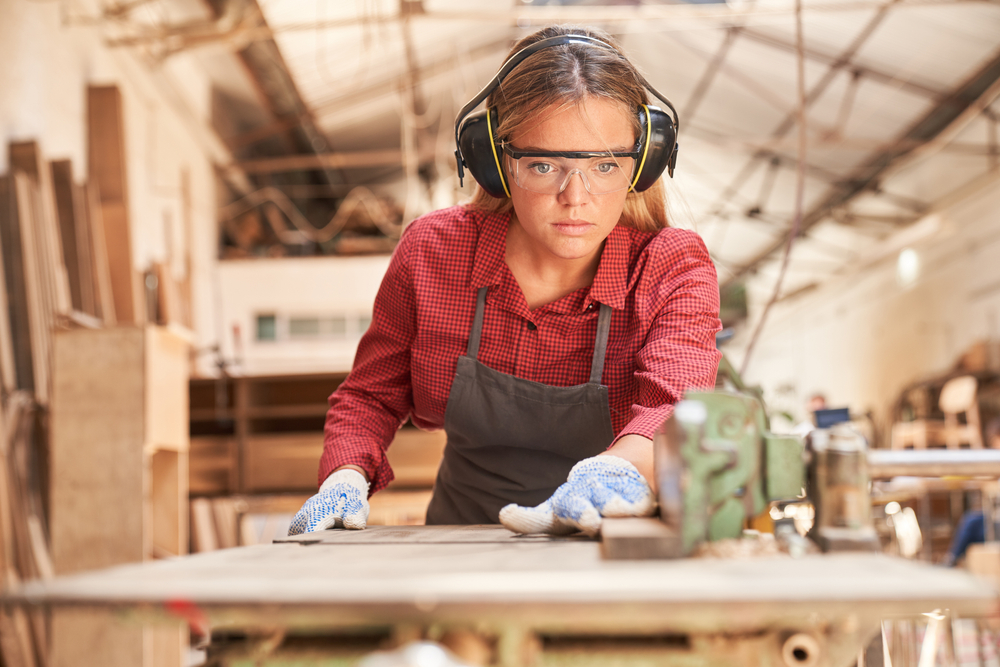
Whether you’re going to concerts, at work, or doing some yard work, hearing protection is crucial in keeping your ears safe from hazardous noise levels. However, you could be left exposed to possible risks if any one of several possible factors interferes with your hearing protection’s effectiveness. Understanding these problems can help you address them proactively and optimize the advantages of your protective gear.
Why hearing protection fails: common circumstances
Unexpected problems will happen even when you observe best practices. You use your earmuffs faithfully at work, wear earplugs at concerts, and stay away from noisy situations whenever possible. However, the effectiveness of your hearing protection can be reduced by specific variables. Luckily, by recognizing these common pitfalls, you can make educated adjustments to ensure your hearing is always well-protected.
1. Choosing the wrong hearing protection for the circumstance
Hearing protection isn’t one-size-fits-all, and choosing the wrong type for a given environment can reduce its effectiveness.
In general, hearing protection comes in two main categories:
- Earplugs: Small foam or rubber plugs that insert tightly into the ear canal.
- Earmuffs: Larger, headphone-like device that covers the whole ear.
There is an ideal type for each situation:
- In situations like a construction site where noise is irregular and you might need to regularly remove your hearing protection, earmuffs are the more effective choice.
- Earplugs are suitable for environments with continual noise levels, including factory floors or airplane cabins.
Earmuffs are easier to deal with when there is a need to regularly put on and remove your hearing protection. Disposable earplugs, on the other hand, can leave you vulnerable to hearing damage because they can be easily misplaced. Selecting the correct hearing protection for your needs is the first step toward protecting your hearing effectively.
2. Fit and function are impacted by anatomy
Everybody’s ears are unique, meaning that not all hearing protection devices will fit everyone equally well. Basic earplugs and earmuffs are often designed with average dimensions in mind, but your ear anatomy might require a more individualized solution.
- Larger ear structures: Earmuffs might be uncomfortable if your ears are larger than average causing gaps in the seal.
- Smaller ear canals: If you have narrow ear canals, standard-sized earplugs may not create a proper seal, reducing their noise-blocking capabilities.
If your hearing protection doesn’t fit properly, you could become frustrated and choose to quit using them altogether which can imperil your hearing. Consider buying custom-fitted earplugs or professionally fitted earmuffs if you spend a great deal of time in loud settings. Deciding to go with a more customized approach will provide you with increased comfort and effectiveness, keeping your hearing safe in any scenario.
3. Neglecting routine maintenance and replacement
In order to stay effective, hearing protection devices need to be correctly maintained just like any other devices do. Their ability to supply sufficient protection can be compromised by things like improper cleaning, wear and tear, and failure to replace them when necessary.
The following are a few tips on how to maintain hearing protection:
- Clean Properly: Debris and earwax can accumulate on your hearing protection over time. In order to safely and effectively clean your earplugs or earmuffs, consult the manufacturer-recommended cleaning instructions.
- Check for Damage: Inspect the elastic band on earmuffs frequently. Their ability to efficiently block noise can be compromised if the elastic band is loose or stretched.
- Replace Cushions: The pliability of earmuff cushions can diminish over time. In order to maintain a proper seal, replace the cushions when necessary.
Ignoring these simple maintenance tasks can leave your hearing protection less effective or even unusable. Routine maintenance is essential to extend their lifespan and ensure consistent performance.
The advantage of a hearing specialist
Make an appointment with us for a consultation if you think that your hearing protection might not be getting the job done. We can check your present devices, suggest alternatives, and even provide personalized solutions tailored to your specific needs.
Keeping your hearing safe is a commitment that lasts a lifetime and it’s crucial that you do it with the right tools. You can safeguard and preserve your hearing for many years by managing these common challenges.
